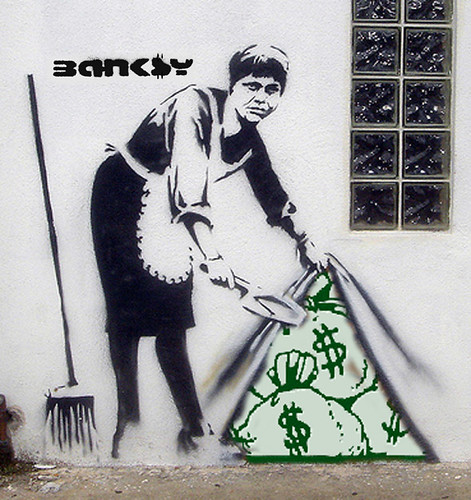Apparently, emphatically yes.
In an experiment earlier this week I decided to post my recent article about Social Media use by Archives and Archivists (see my previous entry) and made a quick announcement on Twitter. The response was far greater than I expected, with over 700 people in just a few days taking the time to visit and read the abstract or access the PDF and I received messages from several archivists thanking me for sharing the article.
 As you can see from the graph of my recent traffic on this oft-neglected site, the results weren't typical.
As you can see from the graph of my recent traffic on this oft-neglected site, the results weren't typical.So what does this mean? Well I think we can infer a few things from this.
Firstly, that people want to read research. Secondly, if authors retain copyright of their work, that access becomes possible.
The only reason I was able to - legally - offer this article to readers was because of Archivaria's very forward-thinking rights assignment policy in which I retain the copyright for the work but grant Archivaria all the rights they need to publish as many copies as they like in as many forms as they like. In return, I have been asked to always provide a full citation whenever I reproduce the article to acknowledge the work of Archivaria.
As an author, this rights assignment policy was the most influential single factor I took into consideration when choosing a journal in which to publish. In this case I overlooked larger journals who demand authors assign full rights, because I believe the whole point of me doing research is to share the results.
Arbitrarily assigning all rights doesn't achieve that goal if the article then sits behind a paywall that may or may not be heavily subscribed.
So what can we do to promote this open-access attitude?
I think the first thing is to start telling editors that you want it.
For writers:
- Email editors before you submit and tell them you have an article idea but you are a supporter of open access and you would like to know the journal's policy.
- Protect your copyright. Negotiate your copyright assignment so that both the editor and you can benefit. There is absolutely no need for you to give away your copyright. And if you are going to give it away, insist that everyone has access: license it under Creative Commons.
- Let editors of publications know that you want to cite material in their publications but you do not have access and will have to overlook their contributions.
- Let authors know you would like to cite material they wrote but you do not have access and will have to overlook their contributions.
- Thank editors who have formulated forward-thinking copyright policies that promote open access to research.





 Fifty thousand screaming readers rush the newsstand to get a copy of your latest research. Okay, maybe they're not screaming, but the numbers probably aren't that far off. While peer-reviewed journals may make the academic world go round, it's through magazines and newspapers that your work can make its way into homes across the country – and you might be surprised to find out how interested Canadians are in what you do.
Fifty thousand screaming readers rush the newsstand to get a copy of your latest research. Okay, maybe they're not screaming, but the numbers probably aren't that far off. While peer-reviewed journals may make the academic world go round, it's through magazines and newspapers that your work can make its way into homes across the country – and you might be surprised to find out how interested Canadians are in what you do.